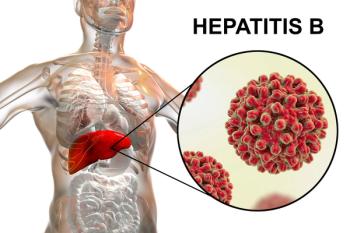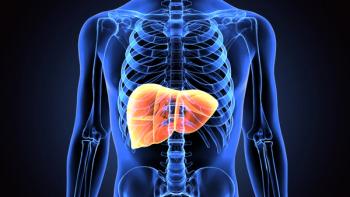
Algorithm Helps Identify Best Treatment for Recurrent Hepatocellular Carcinoma
Using survival after recurrence as the measure, most patients would benefit from reoperative hepatectomy or thermoablation, according to an algorithm developed by Italian researchers. The researchers stress that the algorithm would be used to guide decisions by physicians and patients, not replace them.
Italian researchers have developed an algorithm that they believe could help guide treatment decisions for patients with recurrent hepatocellular carcinoma (HCC). Recurrence is common among patients with HCC that was treated with surgery. The cancer comes back within five years for about 60% of patients.
“Our methodological approach allowed us to create a highly patient-tailored algorithm, which accounted for the heterogeneity of the cases as the concomitant sum of several elements averaged by their impact on survival,” wrote lead author
The study is the first attempt to identify the best potential treatment among reoperative hepatectomy and thermoablation, chemoembolization, or sorafenib in predicting survival after recurrence by a machine and patient-tailored approach, according to Famularo and his colleagues.
The goal of the study was to assess treatment choices for HCC recurrence after surgery that would lead to the best survival after recurrence (SAR). The researchers sorted patients by treatment, age, cirrhosis, number, size, and lobar localization of the recurrent nodules, extrahepatic spread, and time of recurrence were all modifiers, along with SAR.
The retrospective and observational study used data from the Italian registry of approximately 700 patients with HCC from between January 2008 to December 2019.
Of those patients, 293 (41.8%) were treated with reoperative hepatectomy or thermoablation, 188 (26.8%) with sorafenib; and 220 (31.4%) received chemoembolization.
Using SAR as the measure, the algorithm found that 611 patients (87.2%) would have benefited from reoperative hepatectomy or thermoablation while just 37 (5.2%) would have benefited from treatment with sorafenib and 53 (7.6%) from chemoembolization. in terms of potential survival after recurrence.
Currently, the study’s authors write, decisions about which treatment to use is based on oncological knowledge and the physician experience, which is based on individual doctor’s skill, experience and knowledge. An algorithm could automatically evaluate the oncological benefit of one treatment over another and help with evidence-based medical decisions.
Given that physicians have no control over things like the underlying condition of the liver and tumor biology, the choice of treatment is the only opportunity they have to influence the outcome, the Famularo and his colleagues. Having an algorithm like the one developed in the study could simulate scenarios under different treatments for the same patient. An evidence-based algorithm could help doctors collaborate and take advantage of a multidisciplinary approach to medicine.
What the simulated algorithm cannot do, the authors write, is account for the feasibility of one treatment because of factors like comorbidities, frailty considerations, patient will, and surgeon experience. Those factors cannot be foreseen or synthesized by a machine. The algorithm’s oncological simulations, write the authors, are meant as support and not a replacement for a physician’s skill and experience.
“The algorithm should help in allocating patients with recurrent HCC to the best potential treatment according to their specific oncology characteristics in a treatment hierarchy fashion,” concluded Famularo and his colleagues.
Newsletter
Get the latest industry news, event updates, and more from Managed healthcare Executive.























